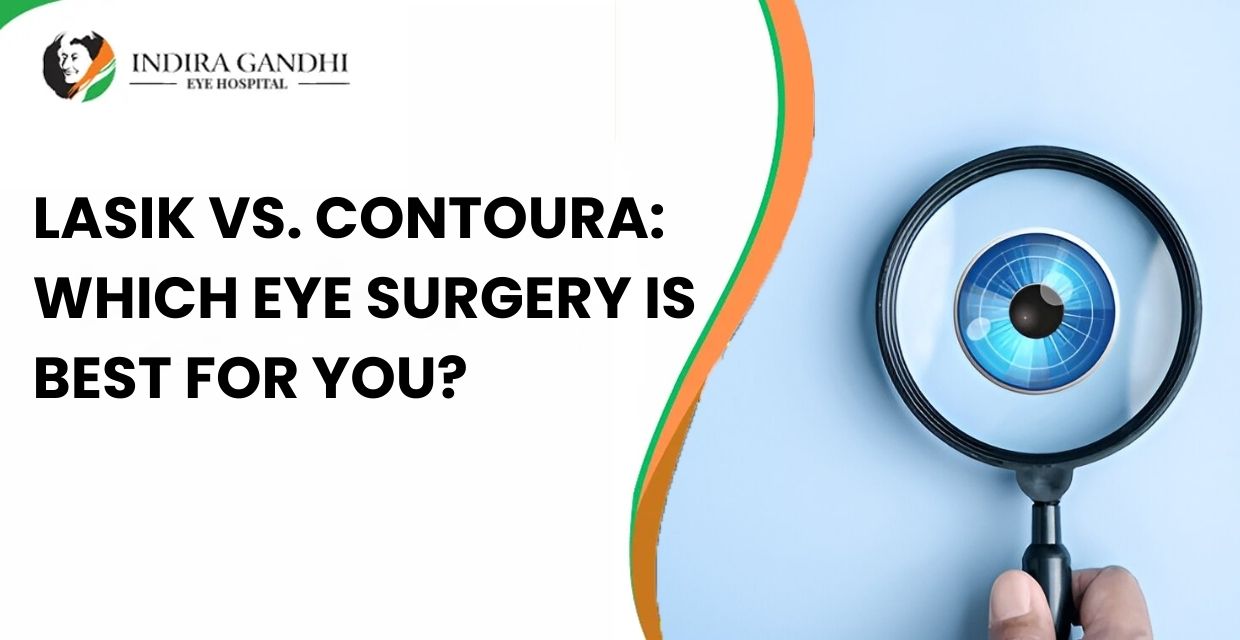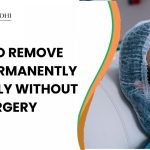|
Getting your Trinity Audio player ready...
|
When it comes to choosing a method for correcting vision, many patients find themselves weighing the options between LASIK and Contoura Vision. Both procedures offer the promise of significantly improved sight through refractive surgery, but they utilize different technologies, have distinct benefits, and come with various considerations. This comprehensive guide will help you understand the distinctions between LASIK and Contoura Vision, assisting you in making an informed decision about which surgery might be best suited to your visual needs.
Understanding LASIK
LASIK, or Laser-Assisted In Situ Keratomileusis, is one of the most popular and well-established forms of refractive eye surgery. By using an excimer laser, the surgeon reshapes the cornea—the clear front cover of the eye—thus correcting vision issues such as nearsightedness (myopia), farsightedness (hyperopia), and astigmatism.
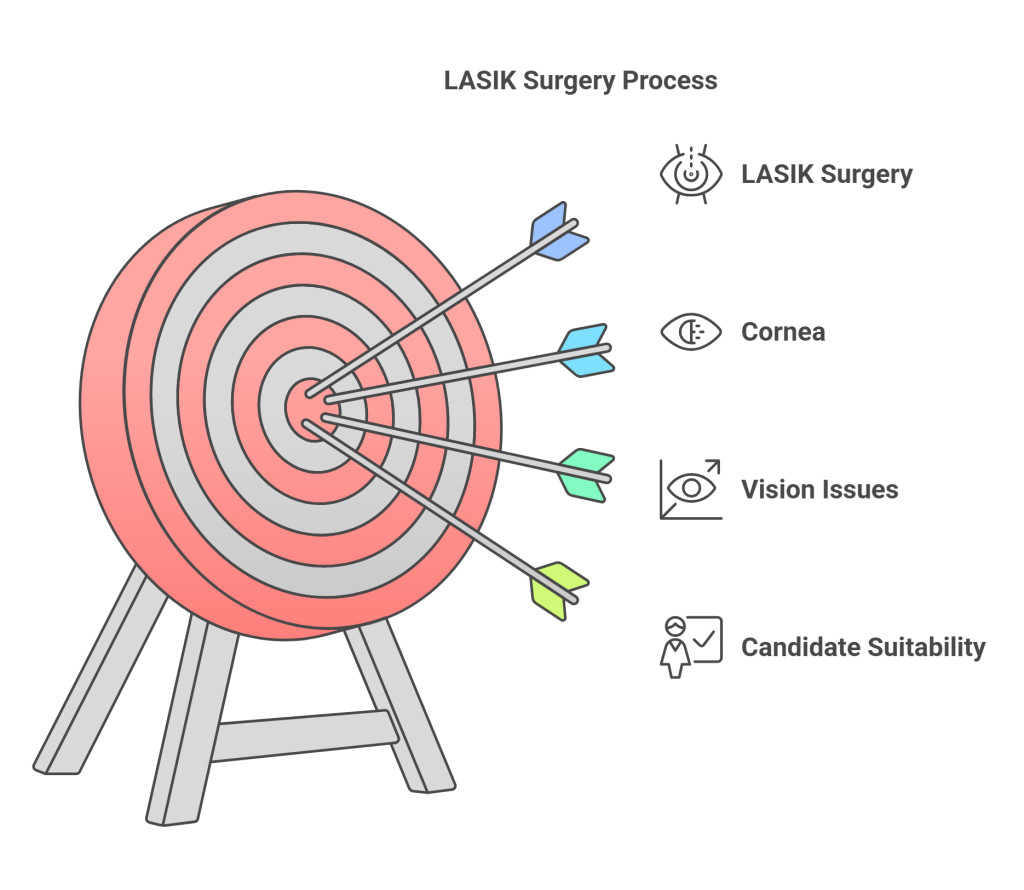
How LASIK Works:
During LASIK, a thin flap in the cornea is first created using a laser or a blade. This flap is then lifted, allowing another laser to reshape the underlying corneal tissue. The flap is repositioned after the cornea is reshaped, where it heals in place without stitches. LASIK is most suitable for adults with a stable eye prescription for at least the last 12 months. Candidates should not have any corneal abnormalities or severe dry eye conditions.
Understanding Contoura Vision
Contoura Vision, also known as topography-guided LASIK, represents a more recent advancement in laser eye surgery. This technique involves a highly detailed mapping of the cornea that measures up to 22,000 unique points, allowing for extremely precise corneal reshaping.
How Contoura Vision Works:
Contoura Vision uses topographical data to guide the laser for more precise ablation of the corneal tissue than traditional LASIK. This personalized approach helps in addressing subtle irregularities in the cornea. Ideal candidates for Contoura Vision are those who not only meet the basic requirements for LASIK but also have irregularities on the surface of their cornea that need specific corrections beyond what standard LASIK can offer.
Benefits of Each Procedure
LASIK Benefits:
- Proven Success: LASIK has a long track record of success and is known for its efficiency and safety.
- Quick Visual Recovery: Most patients notice significant improvements in their vision almost immediately after surgery.
- Versatility: LASIK can correct a wide range of vision problems effectively.
Contoura Vision Benefits:
- Higher Precision: The detailed mapping allows for a treatment that is specifically tailored to the individual’s corneal irregularities, potentially improving not just the quantity but also the quality of vision.
- Reduced Side Effects: Some patients report fewer issues with night-time glare and halos after Contoura Vision compared to traditional LASIK.
- Enhanced Visual Outcomes: In some cases, Contoura Vision can provide sharper vision than traditional LASIK due to its customized approach.
Risks and Considerations
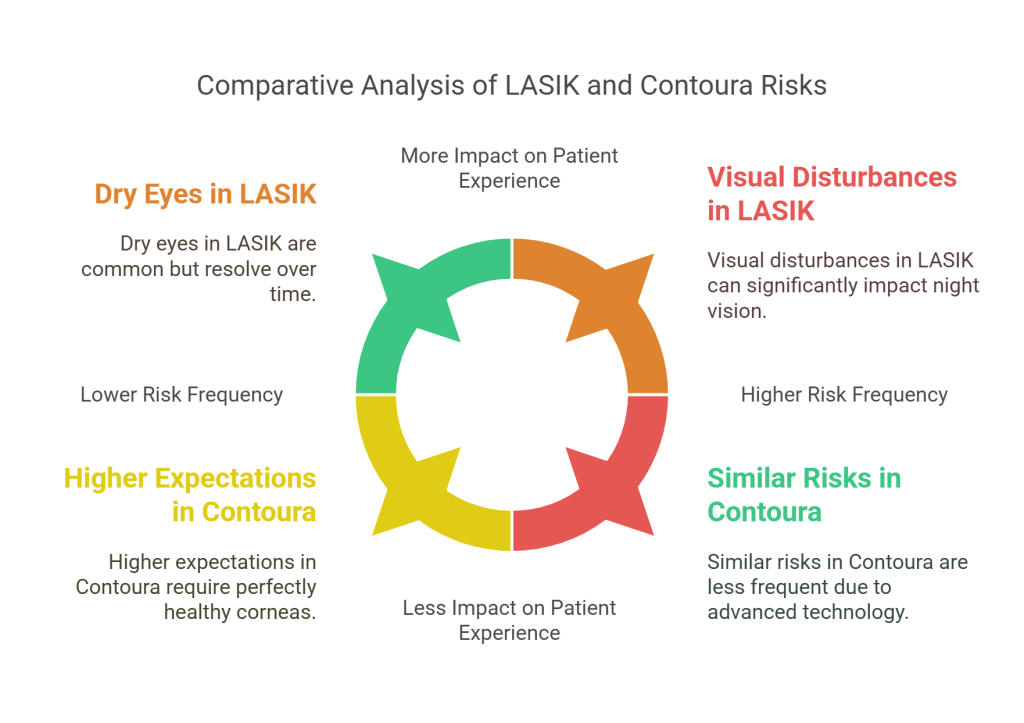
LASIK Risks:
- Dry Eyes: This is one of the most common side effects, which usually resolves within several months.
- Visual Disturbances: Some patients may experience glare, halos, and double vision at night, especially in the early recovery stages.
- Undercorrections or Overcorrections: While rare, some patients may require a second surgery to achieve the best possible vision.
Contoura Risks:
- Higher Expectations: Due to the precise nature of the surgery, patients must have perfectly healthy corneas without any scars or significant abnormalities.
- Similar Risks as LASIK: Including the potential for dry eyes and visual disturbances, although these are generally fewer due to advanced technology.
Recovery and Aftercare
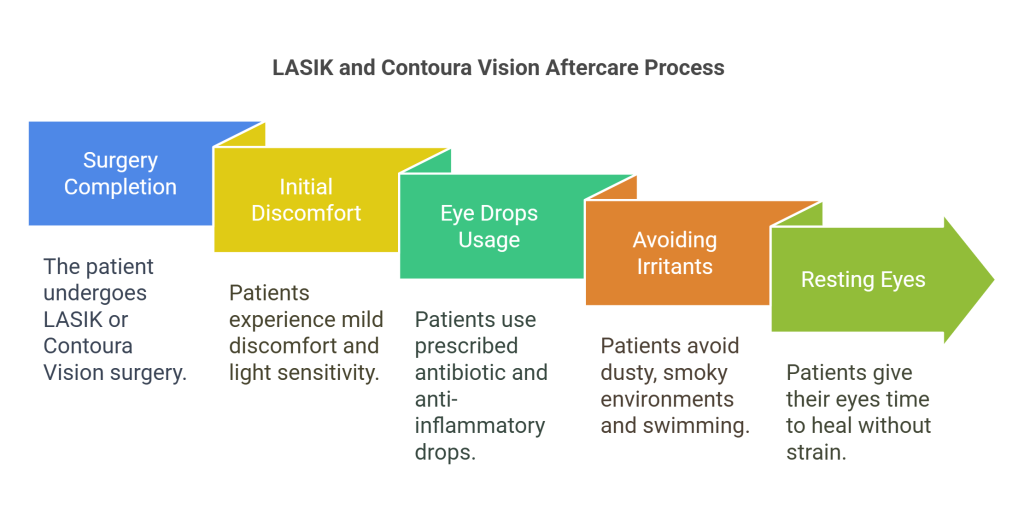
The recovery process is similar for both LASIK and Contoura Vision. Patients can expect some mild discomfort, light sensitivity, and possibly blurry vision for a few days post-surgery. Follow-up appointments are crucial to ensure the eyes are healing correctly and the vision is adjusting as expected.
Aftercare involves:
- Eye Drops: Using prescribed antibiotic and anti-inflammatory drops to prevent infection and reduce inflammation.
- Avoiding Irritants: Keeping away from dusty or smoky environments and avoiding swimming or hot tubs for at least a week.
- Rest: Giving your eyes plenty of time to heal without strain from screens or intense visual tasks.
Choosing Between LASIK and Contoura Vision in Lucknow
For those considering LASIK surgery in Lucknow, it is essential to choose a reputable clinic that offers both LASIK and Contoura Vision, as this allows for a comprehensive assessment of which procedure is more suited to your individual needs. Clinics in Lucknow that offer these procedures are equipped with the latest technologies and experienced surgeons who can provide personalized care and advice based on your specific eye health and vision correction requirements.
Frequently Asked Questions (FAQs)
1. How do I know if I am a good candidate for LASIK or Contoura Vision?
You should have a stable prescription for at least one year, healthy corneas, and no significant eye diseases. A detailed consultation with an ophthalmologist is necessary to determine your eligibility for either procedure.
2. What is the main difference between LASIK and Contoura Vision?
The main difference lies in the precision of corneal mapping. Contoura Vision maps up to 22,000 points on the cornea, allowing for a highly customized correction, compared to traditional LASIK, which corrects general refractive errors.
3. Can I switch from glasses to perfect vision immediately after surgery?
Most patients notice a significant improvement in vision almost immediately after surgery; however, the total recovery time can vary. Full stabilization of vision can take a few weeks to a few months.
4. What are the long-term results of LASIK and Contoura Vision?
Both procedures have proven to be effective with stable long-term results. Regular follow-up visits are recommended to monitor the health of your eyes and ensure the stability of your vision correction.
Conclusion
Both LASIK and Contoura Vision offer effective solutions for improving eyesight through refractive surgery. By understanding the nuances of each procedure, you can make a more informed decision that leads to the best possible outcome for your vision. Whether you choose LASIK or opt for the advanced technology of Contoura Vision, the most important step is selecting a reputable surgeon and facility that prioritize patient care and offer comprehensive pre- and post-operative support. Remember, consulting with an experienced ophthalmologist is crucial in determining the most suitable option for your specific vision needs.


